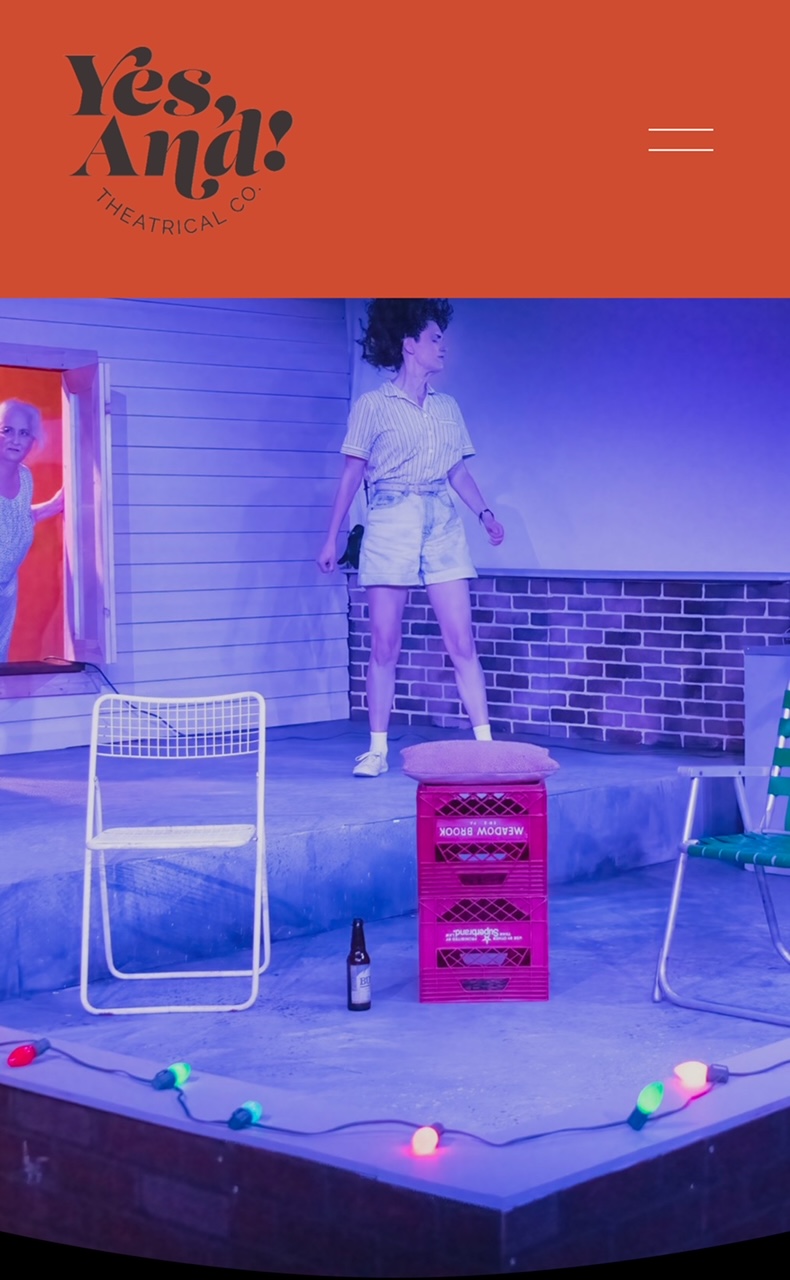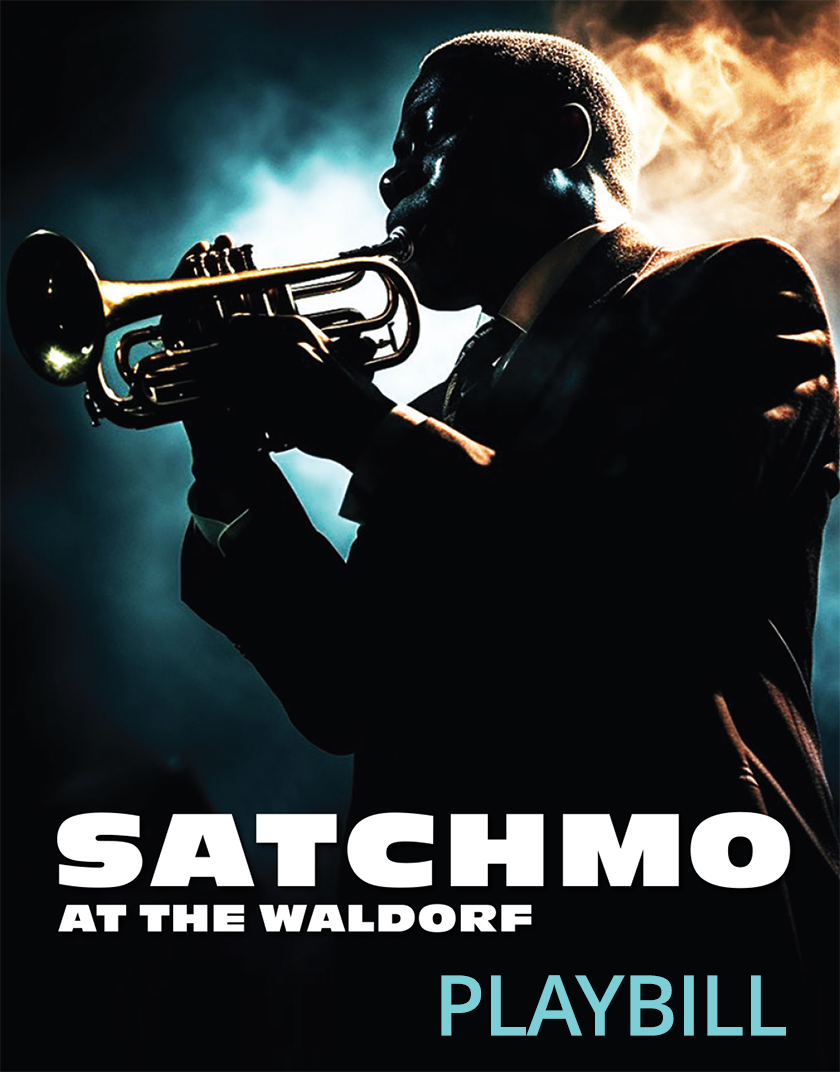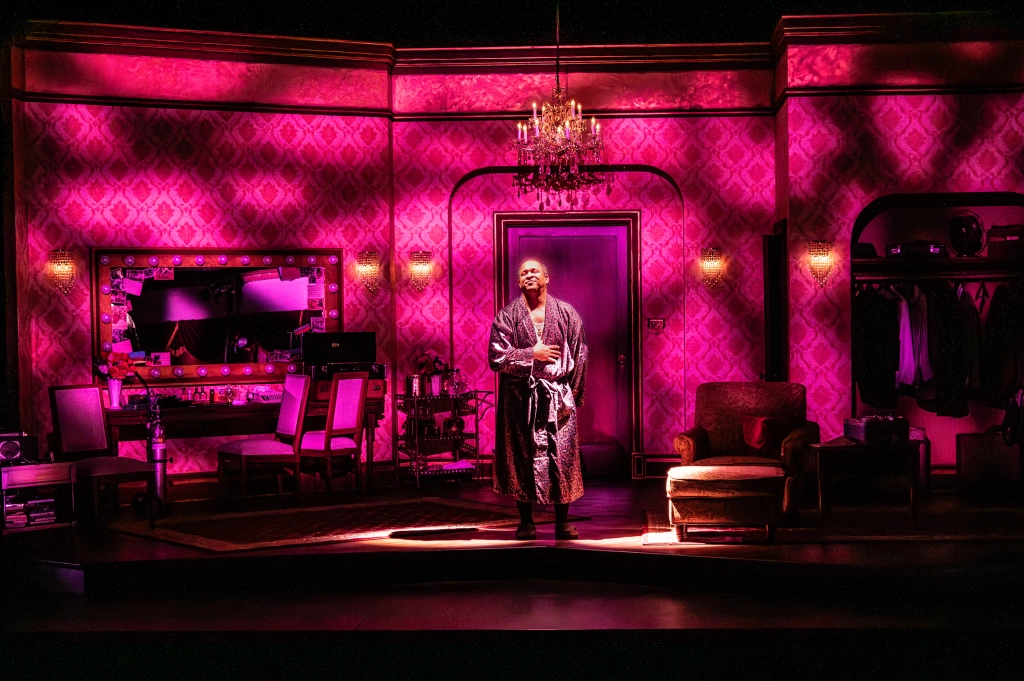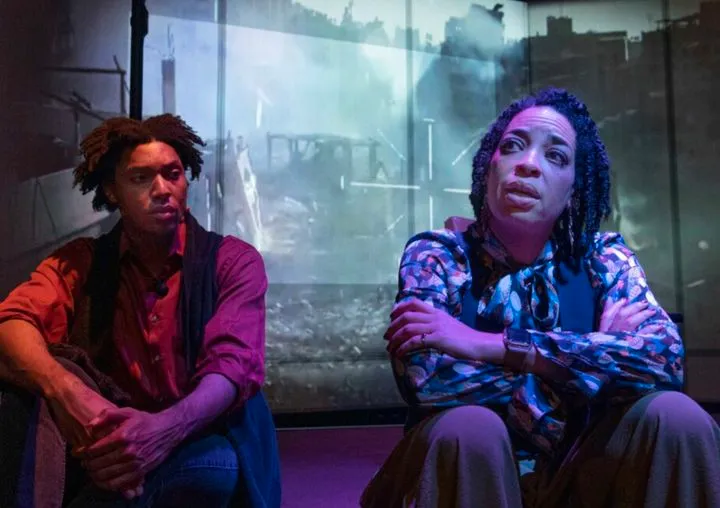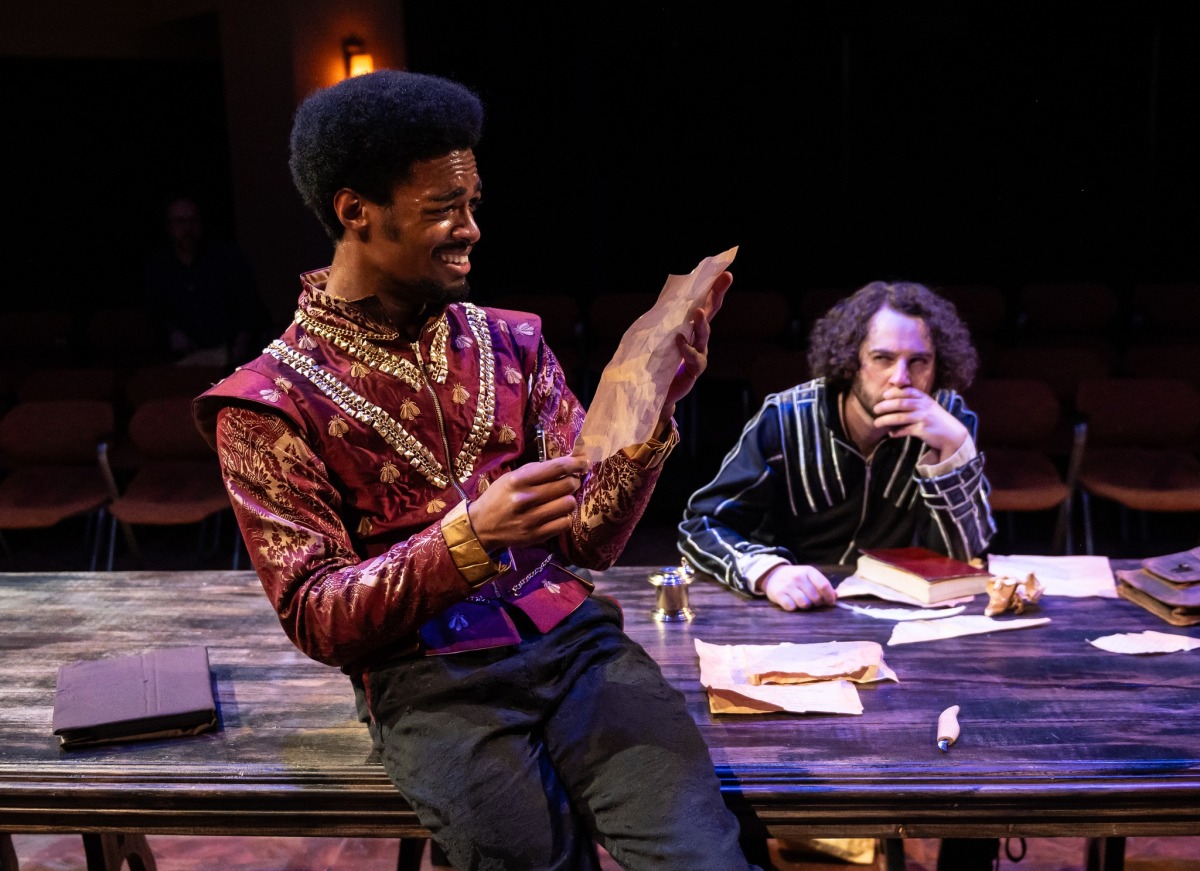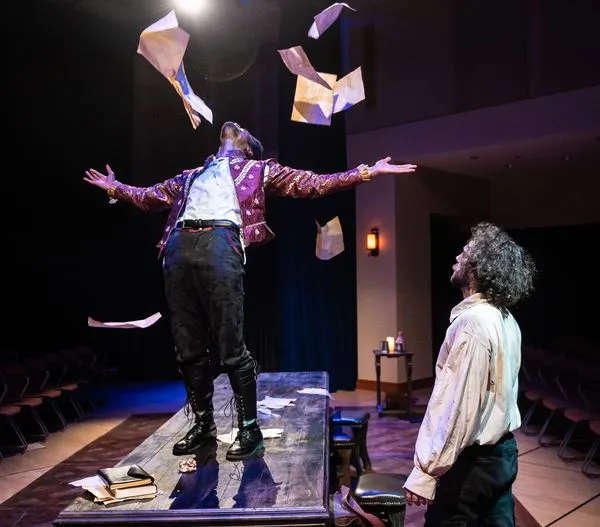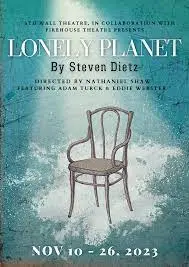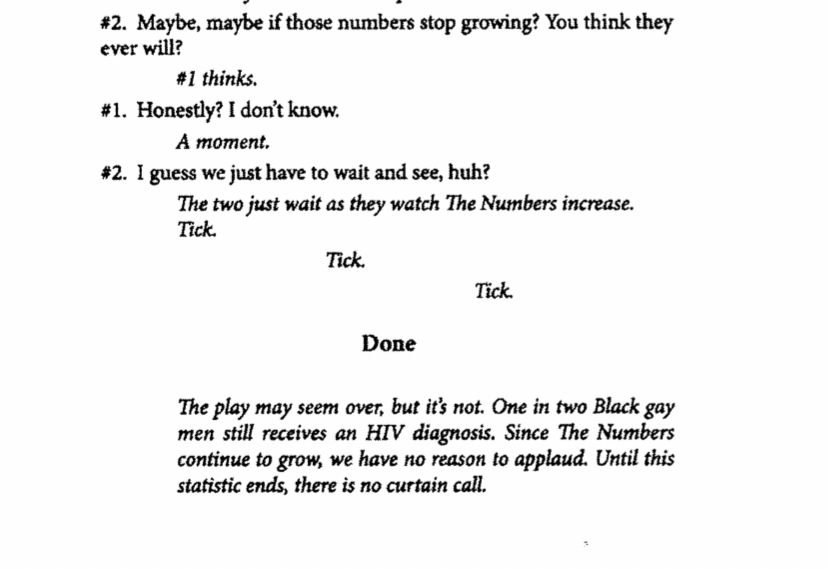DR. RIDE’S AMERICAN BEACH HOUSE*
“If one of us is brilliant, maybe it’s not you,” or
Four Queer Women Lift-off on the Eve of Sally Ride’s Historic First Space Flight
A Theater Review by Julinda D. Lewis
By: Yes, And! Theatrical Company
At: The Firehouse 1609 West Broad St., Richmond, RVA 23220
Performances: March 7-23, 2024
Ticket Prices: $37 general admission
Info: Email: yesandrva@gmail.com; Website: yesandrva.org; Facebook: http://www.facebook.com/yesandrva/
When I say that Liza Birkenmeier’s 4-character, one-act play, DR. RIDE’S AMERICAN BEACH HOUSE is weird, please understand that is an observation, not a judgment. There is a reason why the Yes, And! Theatrical Company – now in its second year of production –- chose this play. I suspect it has something to do with exploration (inner, and self, more than space) and identity (woman as subject, not object, as well as gender and sexuality), and history (personal history as well as the history of Dr. Sally Ride and the American space program).
Set on a rooftop in St. Louis in June 1983, on the eve of the launch of the Challenger space shuttle that carried Dr. Sally Ride, the first American woman to go into space, DR. RIDE’S AMERICAN BEACH HOUSE is both non-linear and non-conforming. Two long-time friends, both poetry majors who have apparently simultaneously run into a writing block, come to the rooftop for the weekly meeting of The Two Serious Ladies Book Club. The club is named for a novel by Jane Bowles in which two women explore – depending in which review you read – “living outside themselves” or descend in debauchery. After forming the book club, however, our leading ladies, Harriet (Ashley Thompson) and Matilda (Rachel Marrs) realize they don’t really like to read, so they spend the time drinking beer and talking.
One day, their complacent little world is shaken up when (a) Harriet shares a harrowing tale of a sexual encounter with a stranger – a bearded biker, no less – and (b) Matilda invites a new friend, Meg (Kasey Britt) whose insight sheds new light on the friends’ sexual tension and life in general, and (c) their lives are all shifted by the imminent space launch that is the main topic on their rooftop radio.
Harriet is high strung and annoying, but about two thirds of the way through we find out she has good reason to be, and in spite of her irksome character, we cannot tear ourselves away from the story she weaves throughout. Perhaps Harriet’s calling was not for poetry, but for fiction or drama…Matilda, who has a husband and a sick child at home, would rather spend her time with Harriet, and is given to bursting out in song – revealing that Rachel Marrs has a stunningly beautiful singing voice and can even attempt a decent Irish step or two.
Most intriguing, however, is Meg. Back stories and character development are not a main point of DR. RIDE’S AMERICAN BEACH HOUSE, so we know that Meg works at a hospital across the street from where Harriet and Norma live, and may – or may not –- be a nurse. She does, however, provide some music therapy for Harriet in the midst of her breakdown, which leads to one of this play’s most delightful moments.
The fourth character is Norma (Jacqueline Jones) – who is either Harriet’s landlady or neighbor. At any rate, it seems that Norma is the caretaker of the Ivan Brock House, named for fictional poet and the house where Harriet lives. Norma is concerned with three things: safety, money, and Harriet’s leaky air conditioning unit. Jones’ two or three appearances are all too brief, as Norma, who seems to be on the far right of some spectrum or another, shares complaints and almost incidentally drops pearls of wisdom and insight on the younger women.
DR. RIDE’S AMERICAN BEACH HOUSE is directed by Kelsey Cordrey with a light touch, a good dose of wit, and a loving respect for words. Cordrey and the cast make us see or at least ponder connections between barbecue and beer, a beach house and a rooftop, an astronaut launching into space and an ordinary person (is there such a thing?) exploring the unexplored landscape of their life. It’s only about 90 minutes long, and the first few minutes are rather slow going, but about midway through – and even more so afterwards – it becomes clear that there is more to explore here than at first meets the eye.
Cordrey explains at least part of the “why” in her director’s note: “Pretty much every queer person I know has felt the urge to “go away” before. To escape to a place, whether literal or figurative, what would be more. More accepting, more fulfilling, more exciting, or more loving”.
Adam Dorland has designed a simple but effective rooftop setting with a couple of chairs, some stacked crates that serve as a table, an HVAC unit, and lots of brick wall constructed at an angle that juts slightly off the edge of the stage. Candace Hudert’s sound design is mostly subtle, and makes use of the ubiquitous 1980s boom box and cassette tapes – remember those???
If you like your theater to have a clear beginning, middle and end, and to tie up all the loose ends with a happy ending, DR. RIDE’S AMERICAN BEACH HOUSE won’t fulfill those needs. If you like theater that asks questions and challenges you to think about why things are the way they are, then this is your kind of play. And if you’re undecided, or not sure, I would urge you to give it a try and discuss it after – maybe with three friends, over a bottle of wine or some beers.
FUN FACTS ABOUT DR. SALLY RIDE
- Sally Kristen Ride (1951-2012) was a physicist and the first female American astronaut
- Sally Ride was married to Steven Hawley (1982-1987) and had a long-term partner, Tam O’Shaughnessy (1985-2012)
- Dr. Ride did not publicly reveal her sexuality until her death, in a carefully worded obituary she wrote before she died
- In 1972, while an undergraduate at Stanford University, Sally Ride played tennis great Billy Jean King in a mixed doubles exhibition
- One morning, at breakfast, in 1977, while she was a doctoral student at Stanford University, Sally Ride read an article in the student newspaper that NASA was opening up applications to women for the first time, so she applied
- Dr. Ride’s younger sister, Bear, is a Presbyterian minister – she is also queer
- Sally Ride was a Trekkie
- Sally Ride and her partner Tam O’Shaughnessy co-authored several science books for children
- In 2013 Sally Ride was posthumously awarded the nation’s highest honor, the Presidential Medal of Freedom; President Barack Obama presented the award to Tam O’Shaughnessy Source: https://today.ucsd.edu/story/20-things-you-might-not-know-about-sally-ride
*ONE FINAL FUN FACT
- The Astronaut Beach House is a two-story building located in Cape Canaveral, FL use to house astronauts prior to their launch. The house is also used as a conference center, and hosts barbecues for astronauts and their families prior to a launch
———-
Julinda D. Lewis is a dancer, teacher, and writer who was born in Brooklyn, NY and now lives in Eastern Henrico County. When not writing about theater, she teaches dance history at VCU and low impact dance fitness classes to seasoned movers like herself, and occasionally performs.
———-
DR. RIDE’S AMERICAN BEACH HOUSE
Written by Liza Birkenmeier
Directed by Kelsey Cordrey
Principal Cast
Ashley Thompson as Harriet
Rachel Marrs as Matilda
Kasey Britt as Meg
Jacqueline Jones as Norma
Understudy Cast
Juliette Aaslestad u/s for Harriet
Amber James u/s for Matilda
Davis Erney u/s for Meg
Nicole Morris-Anastasi us for Norma
Production Team
Scenic Design – Adam Dorland
Costume Design – Amber Martinez
Lighting Design – Steve Koehler
Sound Design – Candace Hudert
Properties Design – Margaret Dodson-Cordrey
Intimacy Direction – Tippi Hart
Production Manager – Todd LaBelle
Production Stage Manager – Crimson Piazza
Asst. State Manager – Marcely Villatoro
YES, AND! THEATRICAL COMPANY
in residence with NEW THEATRE at FIREHOUSE
Artistic Director – Maggie Roop
Managing Director – Nicole Morris-Anastasi
Executive Director – Matt Shofner
Dr. Ride’s American Beach House
Commissioned and Developed by Ars Nova
Jason Eagan, Founding Artistic Director | Renee Blinkwolt, Managing Director
World Premiere produced by Ars Nova, New York City, October 21, 2019
Performance Schedule
Thursday, March 7, 2024 7:30PM Preview
Friday, March 8, 2024 7:30PM Opening Night
Saturday, March 9, 2024 7:30PM
Tuesday, March 12,2024 7:30PM Industry Night
Thursday, March 14, 2024 7:30PM Understudy Performance
Friday, March 15, 2024 7:30PM
Saturday, March 16, 2024 7:30PM
Sunday, March 17, 2024 2:00PM
Tuesday, March 19, 2024 7:30PM Industry Night
Friday, March 22, 2024 7:30PM
Saturday, March 23, 2024 7:30PM Closing Night
Tickets
Ticket Prices: $35 general admission
Run Time
1 hour 36 minutes with no intermission
Notes
Please be aware that an herbal cigarette will be smoked for a brief moment onstage
Photos by Tom Topinka



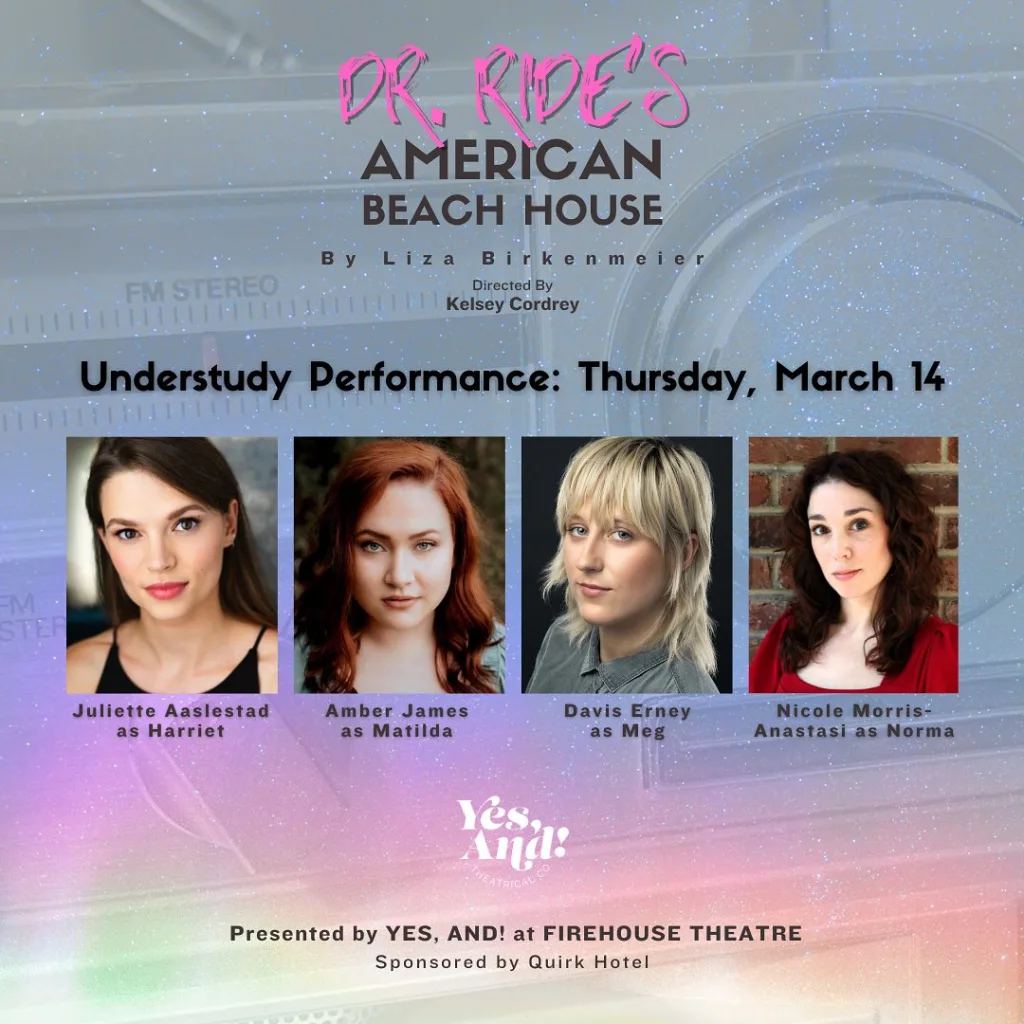

Make a donation in support of
RVArt review
Make a monthly donation
Make a yearly donation
Choose an amount
Or enter a custom amount
Your contribution is greatly appreciated. Thank you.
Your contribution is appreciated.
Your contribution is appreciated.
DonateDonate monthlyDonate yearly
